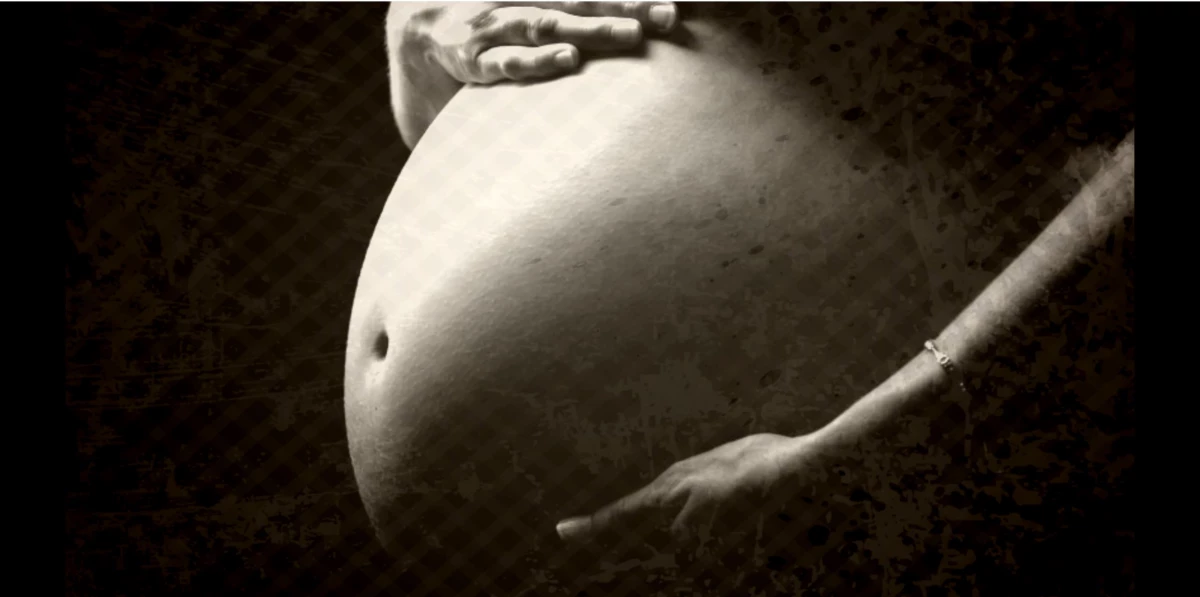Miscarriages: The silent monster eating women and shattering families


Audio By Vocalize
Somewhere in
Kirinyaga town, about a ten-minute drive from the central business district, we
are ushered into a modest one-bedroom brick apartment. Its occupant-a
middle-aged woman, probably in her forties, light-skinned and soft-spoken -welcomes
us quietly. Her calm demeanor belies the immense battles she has fought.
In her arms
rests a nine-month-old baby girl, enjoying the warmth and comfort of her
mother. For most families, a baby is pure joy and pride. Here, however, this
child embodies years of scars, pain, frustration, and hard-won triumph. The
Nyagas’ journey has been long and punishing -18 rugged years, long enough for a
toddler to grow into an adult, and sit his/ her high school exams.
For 11 years,
Muthoni Nyaga battled a hormonal imbalance that caused chronic bleeding. Every
attempt at conception ended the same way: miscarriage. Neighbours mocked her
inability to bear children.
“She might go
looking for children elsewhere,” she often overheard them whisper. Such cruel
remarks drove her into deep bouts of depression.
Yet she clung to
faith, making attempt after attempt, praying that a miracle would happen.
Agonisingly, pregnancies would come and go. On one routine hospital visit,
Muthoni and her husband, Salesio Nyaga, received the most bittersweet news:
“Your wife is pregnant, but she has lost the pregnancy.”
The words ripped through them. It was the culmination of countless visits to hospitals and clinics in desperate search of a child, only for each effort to end in familiar outcome: pain of miscarriage. “I have been washing blood for the past 15 years,” Salesio recalls quietly, referring to the repeated miscarriages. At this point he avoids eye contact -the long battle has clearly taken its toll -but he remains strong in spirit, standing shoulder to shoulder with his wife.

A turning point
In 2024,
everything changed. A visit to a nearby hospital confirmed that Muthoni was two
months pregnant. Determined to protect the pregnancy, they sought alternative
treatments. Their doctor recommended a cervical cerclage-a surgical stitch used
to keep the cervix closed and prevent miscarriage.
“We were
exhausted from the constant losses, but we decided to try one last time,”
Salesio says, his voice thick with emotion, painting their past battles in
detail, as if they had just happened yesterday.
On October 17,
Muthoni delivered their baby girl via caesarean section. After years of anguish
and heartbreak, the Nyagas were finally parents.
The joy was
unmistakable and contagious, especially among the wider family-her
mother-in-law, sister-in-law, and close relatives, all of whom celebrated the
long-awaited arrival.
Muthoni and
Salesio are not alone in their ordeal. Other families share similar stories.
Mercy Aphia, a gospel artist from Komarock in Nairobi, suffered seven
miscarriages before becoming the proud mother of three boys. Her struggle was
compounded by financial hardship: with her husband working as a church
keyboardist, even basic needs were often a luxury, and medical care seemed out
of reach.
Their double
burden was not only the physical and emotional toll of repeated loss but also
the lack of resources to seek consistent medical attention.
Dr. Frederick
Kireki Omanwa, President of the Kenya Obstetrical and Gynaecological Society (KOGS),
explains that miscarriage- defined as the loss of a fetus before 28 weeks -can
occur when the fetus fails to develop as expected. He cites several common
causes:
i]Fibroids:
These can obstruct the uterus, preventing the baby from growing properly and
leading to miscarriage.
ii]Chromosomal
abnormalities: The most common cause of early miscarriage, these occur when
there are problems in how the baby’s cells divide, often resulting in a
non-viable pregnancy. Such abnormalities are typically random and not
inherited.
iii]Hormonal
imbalances: Low levels of progesterone, essential for maintaining early pregnancy,
can lead to miscarriage.
iv] Structural
problems in the uterus: An irregularly shaped or divided uterus can interfere
with pregnancy.
v] High blood
pressure and high blood sugar: Elevated levels can make it difficult for the
baby to regulate its own blood sugar, increasing the risk of miscarriage.
Dr. Kireki also
warns that certain medications are unsafe during pregnancy and stresses the
importance of hospital visits for proper care. Women who have experienced
multiple miscarriages may have a higher risk of another, although the cause can
differ each time.
Treatment, he emphasizes,
must be tailored to the underlying cause. For example, high blood sugar must be
controlled to minimize risk. In some cases, a cervical cerclage—like the one
that helped Muthoni—can prevent early miscarriage and allow a pregnancy to
reach full term.
Psychologist
Isaac Maweu explains that miscarriage can cause immense stress and often leads
to depression. He advises couples to seek mental-health support and urges men
to stand firmly by their partners.
Key recommendations include:
- ·
Recognize
that miscarriage is a traumatic loss requiring both emotional and medical care.
- ·
Ignore
mockery and societal pressure; focus on healing together.
- ·
Seek
professional mental-health assistance to prevent further harm.


Leave a Comment